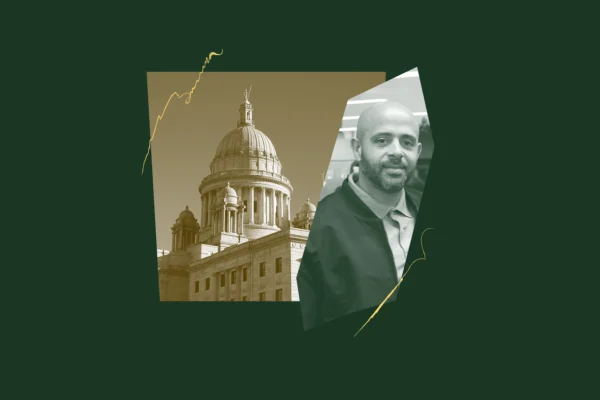Mario Monteiro, the namesake of “Mario’s Law,” the state law designed to give youthful offenders with long prison sentences the opportunity to apply for parole after 20 years, was released from the ACI today after serving more than 22 years in prison for a crime he committed at the age of 17. His release was made possible by a R.I. Supreme Court decision earlier this month that rejected the Attorney General’s interpretation of the law that would have barred the availability of early release for him or any other juvenile offenders for at least another decade.
Dee Jensen, Monteiro’s aunt, spent years vigorously lobbying for the legislation that helped set her nephew free. She testified how he lost his mother when he was ten, his father when he was eleven, and then was left to be raised by a friend of his father, who exposed him to years of serious physical abuse and neglect and involvement in a gang as a young teen. Jensen said today, “I am overjoyed to see this day. Mario and all people like him deserve to have the hope that someday they will have an adult life in society. I am grateful to all those who recognized that rehabilitation is possible and that young people who commit serious crimes merit a second chance.”
“Mario’s Law” provides that “any person sentenced for any offense prior to his or her twenty-second birthday” is eligible for parole after serving 20 years. The law was passed in recognition of the fact that, as the U.S. Supreme Court has noted, “even when they commit terrible crimes,” juveniles lack the culpability of adults due to their immaturity and underdeveloped sense of responsibility and should therefore be given a second chance. Monteiro is 40 years old and had been incarcerated his entire adult life after being sentenced to two life sentences for a murder he committed as a juvenile. Last year, ACLU of Rhode Island cooperating attorneys Lynette Labinger, Lisa Holley, and Sonja Deyoe sued the state on behalf of Monteiro, joining two other two other juvenile offenders represented by the ACLU attorneys – Keith Nunes and Joao Neves – who had all been stymied in being considered for parole, despite positive recommendations from the parole board, due to the state’s distorted interpretation of the statute.
Unlike Monteiro, Neves and Nunes were released on parole in 2022 when the Superior Court ruled in their favor and the Supreme Court did not intervene in their release. Since that time, Nunes has obtained a bachelor’s degree from Roger Williams University and has been admitted on scholarship to a Masters of Divinity program at Boston University with the goal of becoming a pastor. Neves completed a “Building Futures Apprenticeship Program,” has received a number of vocational certificates and currently works on bridge repair, with plans to obtain a contractor’s license and open a business.
ACLU attorney Holley said today: “Thanks to the General Assembly, the courts and the parole board, Mario’s release acknowledges the basic fact that juvenile offender characteristics of impulsivity, recklessness and immaturity should be considered before keeping in prison for life a person sentenced in their youth. Our other clients have proven the reality and success of rehabilitation, and I am very pleased that Mario will now be able to do the same.”
Background information on the case can be found here.

